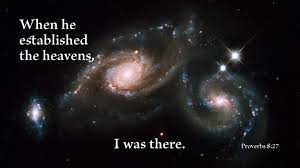SavedByGrace
Well-Known Member
From: His By Grace--"John Gill: A Body of Doctrinal & Practical Divinity"-Doctrinal Book 1, Chapter 30
"That the Son of God is a Person, and a Divine Person distinct from the Father and the Spirit, cannot be doubted;
for since His Father is a Person, and Jesus is the "Express Image of His Person", He must be a Person too;
and He must be the Express Image of Him, as He Himself is a Divine Person, the Son of God, and truly God;
and not as he is man and mediator;
not as he is man, or as having an human nature, for his Father never had any, and therefore he could not be the image of him in that respect;
for though man is the image of God as to some qualities in him, yet is he never called his character or express image, much less the express image of any of the persons in the Deity:
nor as Mediator, and in an Office Capacity, for his Father was never a Mediator, nor in an Office: it remains therefore that it must be the Express Image of His person, as He Himself is a Divine Person, abstracted from any consideration of His human nature, and of His Office.
For as Plato {1} says, that which is like must needs be of the same species with that to which it is like.
The definition of a Person agrees with Him: He is an Individual, Distinct, though not separate from the Divine Nature, He has in common with the Father and the Spirit;
He Subsists of Himself in that Nature Distinctly, and Independently;
is not a part of another, the Whole Fulness of the Godhead Dwells in Him;
nor is His human nature, which He assumed in Time, a part of His Person, nor adds anything to His Personality;
but being taken up into Union with His Person, subsists in it;
He has Life in Himself, and is the Living God;
is Intelligent, has Understanding and Will;
Knows Himself, His Father and the Spirit, and all creatures and things, and does whatsoever He Pleases."
That is Gill's theology!

